Do you have a good understanding of what occurs during your flight? If you're more preoccupied with admiring the scenery outside your window or contemplating your plans at your destination, you're not alone. It's common for many of us to fly regularly, making the journey seem routine and unexciting. However, if you've ever been curious about the reasons behind certain procedures and routines, here are 5 fascinating facts about your flight that you probably didn't know. Let's get to it!
Are there any fascinating facts about planes that you might have been unaware of before?
1. Cabin crew can unlock the onboard toilet from the outside
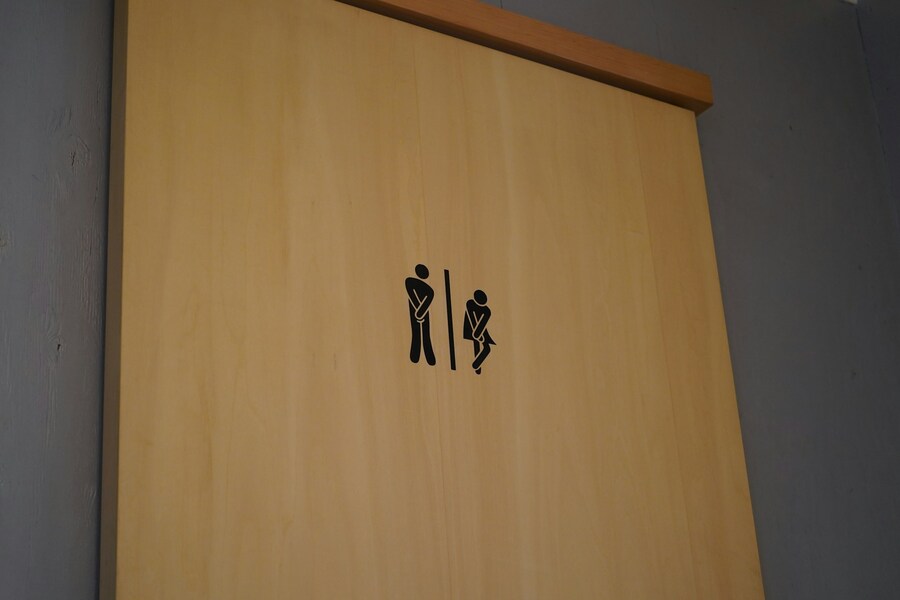
Source: Yosuke Ota/Unsplash
Nobody wants to feel embarrassed by being interrupted while using the bathroom, which is why they have locks. However, what happens if there is an emergency? For instance, a young child accidentally locks themselves inside, a passenger suddenly falls ill and requires immediate medical attention, or the smoke alarm goes off.
In such situations, the cabin crew have the authority to make a judgment call and unlock the door from the outside. There is a hidden mechanism on the exterior of the door, sometimes concealed behind the restroom sign, which can be accessed if they deem it necessary. This is also how cabin crew lock the door during takeoff, landing, and when experiencing turbulence.
2. Extraordinary powers granted to the Pilot in Command during flight
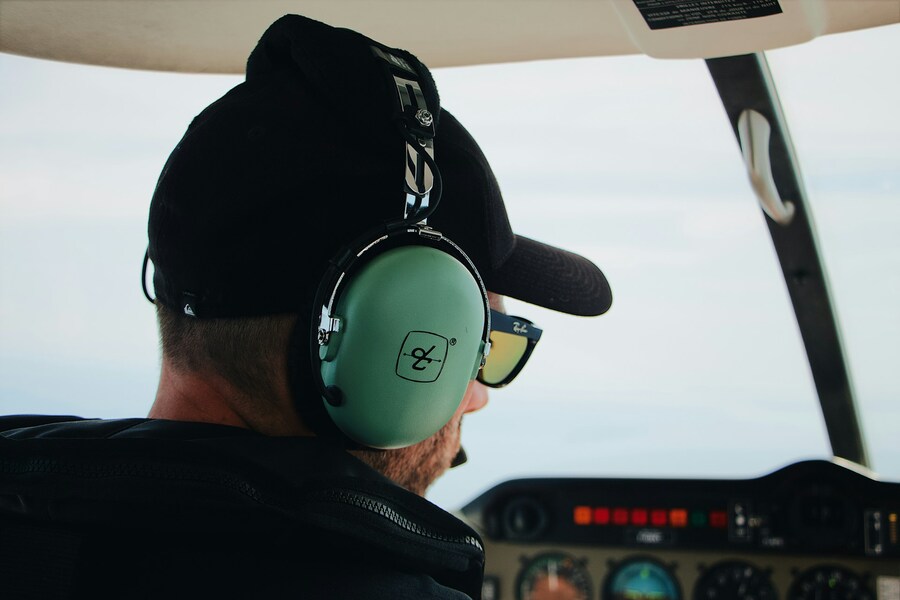
Source: Maël BALLAND/Unsplash
In addition to the important task of piloting the aircraft, the pilot possesses exceptional authority while in flight. As the designated Pilot in Command, they hold the ultimate decision-making power regarding all aspects of the aircraft's operation. This encompasses tasks, such as ensuring the proper functioning of instruments before takeoff, as well as making in-flight decisions regarding the enforcement of seatbelt usage.
The captain maintains the authority to remove a passenger who poses a threat to the safety of others on board. If a passenger is excessively intoxicated, abusive, or disruptive, the crew is trained in techniques to defuse the situation. As a last option, the pilot-in-command may choose to restrain the individual while seeking clearance from air traffic control to conduct an unscheduled landing. In addition, they have the ability to request the presence of law enforcement or other officials upon landing.
3. Aircraft designed to glide in case of engine failure
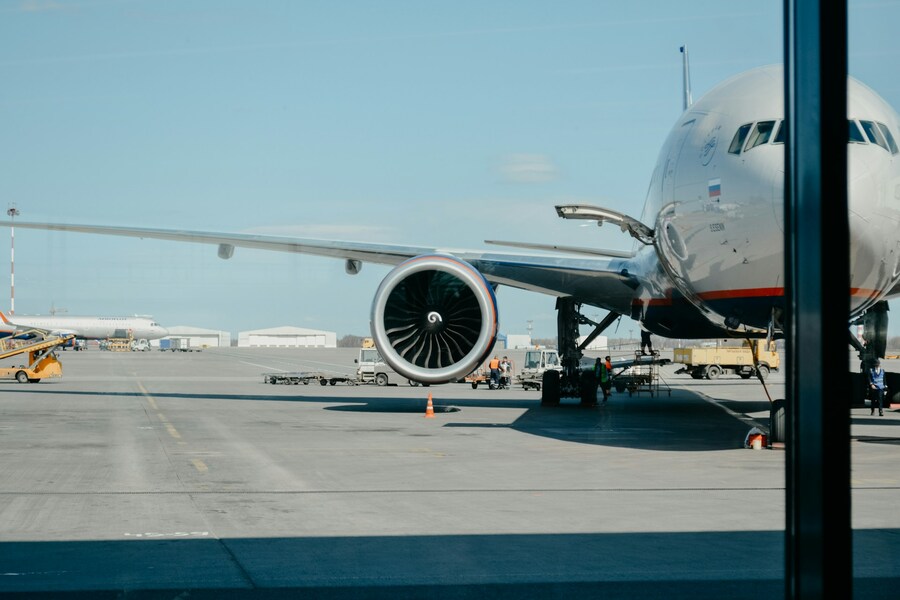
Source: Ivan Shimko/Unsplash
Planes of various sizes have the capability to glide in the event of engine failure. Fortunately, the chances of a forced landing like this occurring are quite low. However, if it does happen, it can still be safe, as exemplified by the actions of Captain Chesley "Sully" Sullenberger. Depending on factors, such as altitude, speed, and wind conditions, a plane has the potential to glide for a distance of about 100 miles.
Pilots undergo training to determine the optimal glide speed, which allows the aircraft to cover the greatest distance with minimal loss of altitude. It's also important to calculate the minimum sink speed in order to keep the plane airborne for as long as possible. These considerations provide valuable time for all parties involved to identify a suitable landing area. In Captain Sully's case, the Hudson River in New York proved to be a safe landing spot, resulting in no loss of life and only a few injuries.
4. The food isn't as terrible as we assume
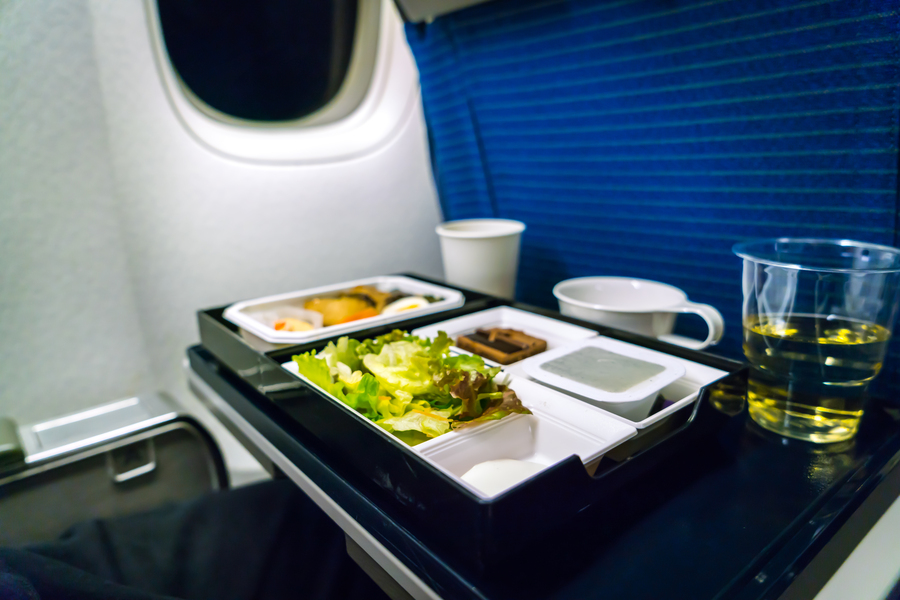
Source: jannoon028/Freepik
Airlines face a challenging task when it comes to providing us with satisfying meals. The logistics of serving a large number of people in a small space mean that meals are pre-cooked and reheated as needed. To prevent the food from drying out, it's often covered in sauce. However, chefs face various factors that affect our sense of taste, such as low pressure and dry air. In fact, a scientific study has even shown that the noise level on board can influence how we perceive flavors.
Chefs who prepare airline meals are required to increase the amount of salt or sugar in the dishes significantly to match the taste of the same meals on the ground. In addition, ingredients like cinnamon, ginger, garlic, chili, and curry powder are used to enhance the flavors. However, foods rich in umami, the fifth basic taste, are an exception. Our sense of umami is actually stronger at high altitudes, so it's recommended to order dishes that contain umami-rich ingredients like tomatoes, soy sauce, mushrooms, or sardines the next time you fly.
5. Why should you wear your mask before helping others?
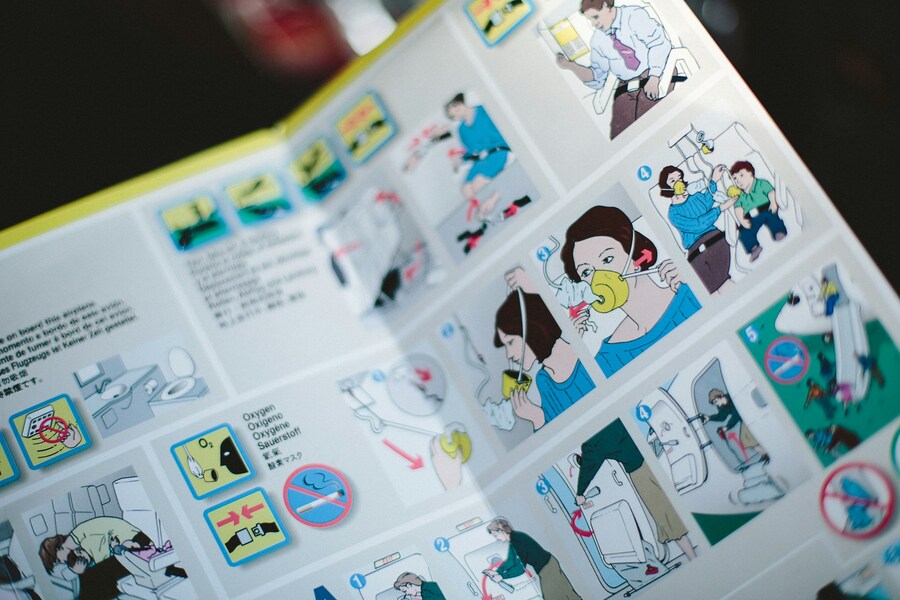
Source: Calle Macarone/Unsplash
Most of us have likely never experienced it, but if the cabin pressure in an aircraft were to drop, oxygen masks would be released for our safety. These masks are crucial for our survival, as a lack of sufficient oxygen can lead to dizziness, confusion, and even loss of consciousness. Thankfully, the aircraft cabin is designed to prevent such situations from occurring.
In the case of an emergency, you typically only have about 30 seconds to put on your oxygen mask before you begin to feel the effects of the reduced air pressure. This explains why the instructions advise you to secure your own mask first, ensuring that you remain capable of taking care of yourself. By law, the oxygen supply on board must last at least 10 minutes, which allows enough time for the plane to descend to a lower altitude with a higher concentration of oxygen.
Power up for your getaway: stay connected with premium parking amenities from ParkingNearAirports.io!

Source: prostooleh/Freepik
Along with our ultimate travel guide, we would like to share an additional valuable suggestion. This advice will prove beneficial for individuals who opt for air travel.
If you get to the airport by car, you always need to find a good parking space for your vehicle to leave for the period of a trip. In most cases, airports have special on-site parking for that purpose. However, such a parking lot is pretty costly most of the time, and people aren't ready to spend a lot of money at the beginning of a trip. So is there any solution?
The best way to solve this problem is to choose off-site parking. Why, you may ask? We will explain.
There are many reasons which can prove the benefit of this parking type. Here are some of them:
- Affordable Rates. Depending on the duration of your trip, you can choose between short-term and long-term airport parking. Anyway, an off-site airport is much cheaper, so you can save your money and spend the most considerable amount on things you really want to see or try while traveling.
- Fast Service. In contrast with on-site airport parking, which can take quite a long time, off-site parking offers you the convenience of driving directly to the entrance and having a staff member pull your luggage out of your vehicle and load it into the shuttle. Then they will park your car for you. After your baggage is loaded, you can take your seat in the shuttle, which will bring you and your bags to the airport. It's a hassle-free option that is usually faster.
- Convenience. When people travel, they may be stressed about making it to the airport on time. If you use off-site parking, you will definitely make your travel experience more convenient, as you use the service of a private company. Even though you may be able to park on-site at the airport in a short-term or long-term airport parking lot, consider using an off-site parking lot service.

Source: Maria Orlova/Unsplash
We are glad to say that our booking platform, ParkingNearAirports.io, offers travelers online reservations for parking just outside airports that are convenient and affordable. Our experienced team is dedicated to providing travelers parking options at over 100 airports in the US and Canada. The app allows customers to search and compare parking rates at up to 70 percent savings compared to the cost of on-site parking at all major airports.
With our platform, it only takes a few clicks in the app to reserve a parking spot. Guests receive a booking confirmation and a guaranteed parking space upon arrival at the off-airport parking. In addition, the app helps customers locate the most convenient lots to the airport. Cancellations are easy if plans change with hassle-free, refundable cancellations.
Besides this, we also offer services for top cruise ports in Florida, Louisiana, Maryland, New Jersey, and Texas.
Now let's take a good example. Imagine that you're planning a trip to Europe. So if you're flying from Kansas City, Missouri, USA, you can use cheap parking near MCI Airport. If you're coming from Jacksonville, Florida, you can choose affordable off-site JAX long-term parking. It just depends on the place you're flying from.
You can always find everything you need on our official website: the best deals for parking near US and Canadian airports, airport parking cost, and much more.






